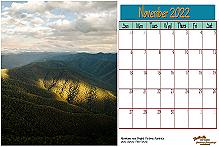Kim Stanley Robinson
Mars Trilogy Series
Greening the Planet
The Mars trilogy of Kim Stanley Robinson. Three enormous, well-researched tomes about the colonisation of Mars by humans.
The colonisation is a multi-cultural venture, the conflict comes from the different agenda and values of the colonists. It raises the issues of conservation and makes one wonder about the moral questions. Yes, terraforming makes uninhabitable lands habitable, but do we have any right to literally change the face (and ecosystem) of any planet we can get to?
A rather poignant point made is how quickly the beauty of the wild, unexplored plains becomes just more dreary dirt on the side of the road.
As the series continues, Mars' history follows the pattern we saw on Earth: colonisation, then revolution, then a conflict of interests seeking control.
submitted by Ali Kayn
Summary:
Red Mars
Green Mars
Blue Mars

Red Mars, Kim Stanley Robinson |
Red Mars A remarkable book about the colonisation of Mars. Carefully researched and thought out, it is the first of a trilogy (Green Mars, then Blue Mars) and covers the arrival of the first colonists on Mars, the impact that they have on that environment immediately (the difference between the wild and the tamed) and the terraforming activity as they begin to make Mars a home.
|
|
| Buy Online |
Amazon.com
|
|
|

Green Mars, Kim Stanley Robinson |
Green Mars Green Mars continues the story of colonisation, with the descendants of the original colonists almost clones, with the same behaviours, mistakes, and even similar actions. Very deja vu.
One of the concerns this story addresses is the implacability of corporate greed, and the willingness of governments (the supposed representatives of the people to put material/capitalist interests above human rights and human life.
|
|
| Buy Online |
Amazon.com
|
|
|

Blue Mars, Kim Stanley Robinson |
Blue Mars
According to Publisher's Weekly: Not until the closing chapters, when they begin confronting their mortality, does the human dimension of the story balance out its awesome ecological extrapolations. Robinson's achievement here is on a par with Bradbury's The Martian Chronicles and Herbert's Dune, even if his clinical detachment may leave some readers wondering whether there really is life on Mars.
|
|
| Buy Online |
Amazon.com
|
|
|








 Published in Melbourne, Victoria, Australia
Published in Melbourne, Victoria, Australia 